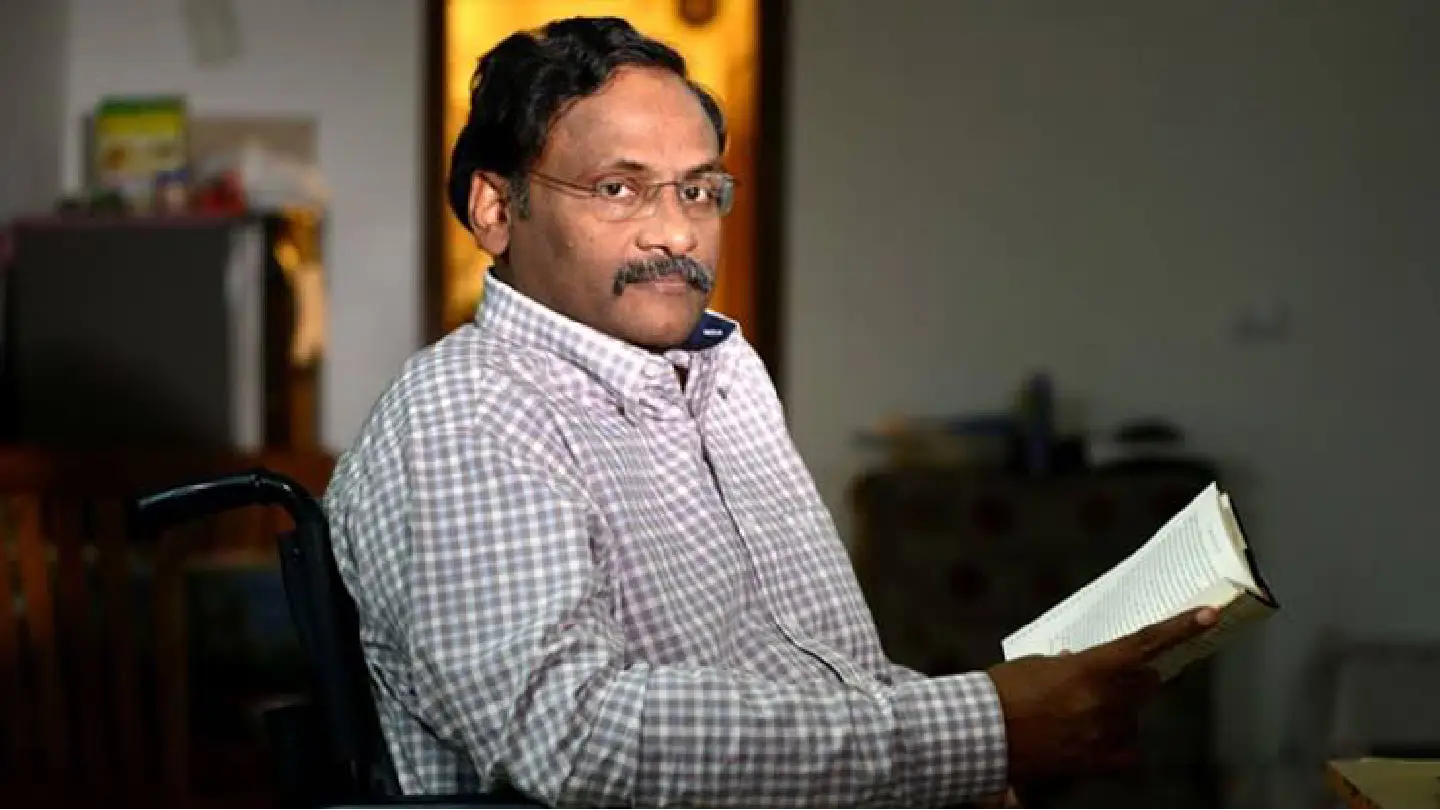Professor G.N. Saibaba, a former academic at Delhi University, became a significant figure in the socio-political landscape of India, particularly in relation to academic freedom and human rights. Born on February 5, 1967, in Maharashtra, Saibaba was a well-respected scholar, known for his work in English literature and his deep engagement with socio-political issues. However, his career took a dramatic turn when he was accused of having links to Maoist insurgents, leading to his arrest and a contentious legal battle that lasted nearly a decade.
Saibaba’s academic journey began at the University of Mumbai, where he completed his Master’s degree and subsequently his Ph.D. in English literature. His teaching career at Delhi University saw him making a significant impact on his students, often encouraging them to think critically about socio-political issues and the complexities of modern Indian society. Saibaba’s interest in social justice and human rights became central to his academic and activist endeavors, making him a prominent voice against the marginalization of various communities.
In 2013, Saibaba was arrested and charged under the Unlawful Activities (Prevention) Act (UAPA), primarily for allegedly supporting Maoist activities. His arrest was controversial, sparking significant public outcry from various human rights organizations and academic circles, who argued that his detention was politically motivated and an infringement on academic freedom. Saibaba was subsequently convicted in 2017 and sentenced to life imprisonment, a decision that was met with widespread criticism both nationally and internationally.
Saibaba’s case became emblematic of the broader struggle for civil liberties in India, particularly in the context of increasing governmental crackdowns on dissent. His supporters argued that the charges against him were unfounded and that the evidence presented during the trial was inadequate and heavily scrutinized. Advocacy groups such as Amnesty International and Human Rights Watch condemned his conviction, viewing it as part of a larger pattern of repression against intellectuals and activists.
After spending several years in prison, Saibaba’s fortunes changed in March 2024 when the Nagpur Bench of the Bombay High Court overturned his conviction. The court ruled that the prosecution had failed to establish the charges against him convincingly and described the sanction for prosecution under the UAPA as “null and void”. This landmark decision was celebrated by his supporters as a victory for justice and a significant moment for the protection of civil rights in India.
However, Saibaba’s health had deteriorated during his time in prison. He was wheelchair-bound due to a 90% disability stemming from polio and other health complications. Following his acquittal, he was admitted to Nizam’s Institute of Medical Sciences in Hyderabad, where he underwent surgery for a gallbladder infection. Unfortunately, he passed away on October 12, 2024, due to post-operative complications. His death was met with widespread mourning, as many remembered him as a dedicated scholar and an unwavering advocate for human rights.
Saibaba’s legacy is complex and multifaceted. He was not just a victim of the state but also a symbol of resilience against oppression. His life’s work and struggles have inspired many in the fight for academic freedom and civil liberties in India. As discussions about his contributions to literature, human rights, and activism continue, it is clear that his impact will resonate in the ongoing dialogues about justice and the role of intellectuals in society.
Professor Saibaba is No More
In the wake of his passing, there are calls for his story to be remembered not just as a cautionary tale but as a reminder of the importance of defending the freedoms that allow scholars and activists to speak truth to power. His family has honoured his wishes by deciding to donate his body for medical research, a testament to his commitment to education and the betterment of society.
As India navigates its challenges surrounding dissent and civil rights, the lessons from Professor G.N. Saibaba’s life and struggles will continue to be relevant, urging society to uphold the values of justice, freedom, and human dignity.



